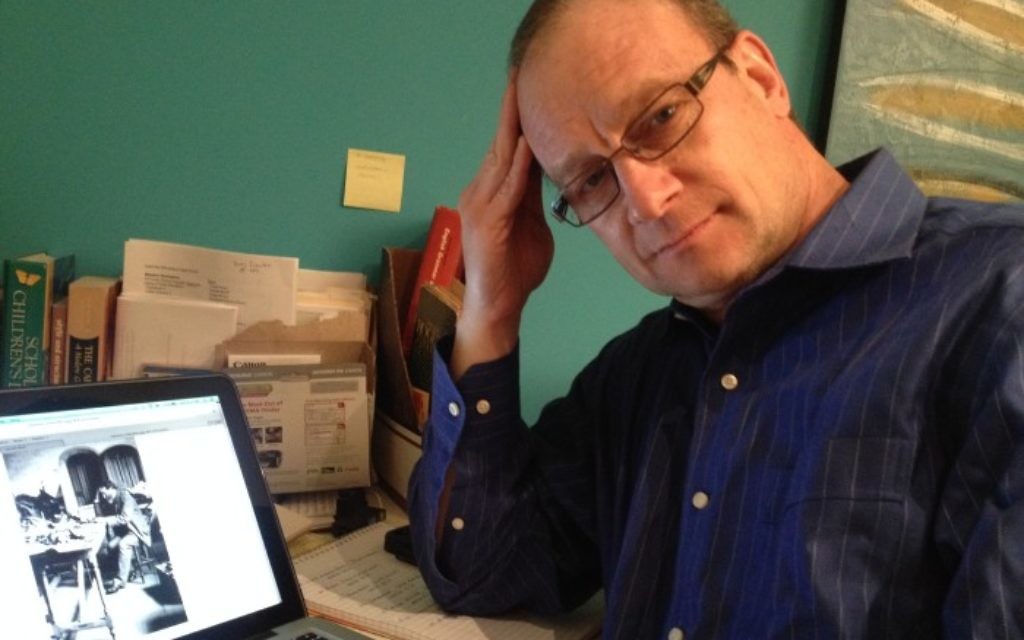Jews in 2 Realities
My last column referenced “a sometimes troubled relationship between Israel and the Jewish Diaspora in the United States.”
Consider the American Jewish Committee’s August survey of more than 1,000 adult American Jews. Asked whether “caring about Israel is a very important part of my being a Jew,” only 47 percent agreed strongly, while 26 percent agreed somewhat, 16 percent disagreed somewhat and 10 percent disagreed strongly.
That may help explain why only 48 percent have visited Israel.
Get The AJT Newsletter by email and never miss our top stories Free Sign Up
Yossi Klein Halevi cares deeply about this relationship, having transplanted his American roots to Israel nearly 35 years ago.
As a young man, Halevi’s concerns took him to extremes he recounted in “Memoirs of a Jewish Extremist: The Story of a Transformation.” Today he is a senior fellow at the Shalom Hartman Institute in Jerusalem and co-director of its Muslim Leadership Initiative. An insightful observer of Israeli affairs, his writings appear in a variety of English-language publications.
Halevi assessed the American Jews-Israel relationship in remarks delivered in September at Zionism 3.0: In Search of the Shared Dream, a conference sponsored by the Oshman Family JCC in Palo Alto, Calif.
Speaking as something of a therapist, he said, “We are two communities that are fated to remain in intimate relations.” As homes to 85 percent of world Jewry, America and Israel are the healthiest branches of the family but, in Halevi’s view, live in different realities.
“You live in the most hospitable conditions that Jews have ever experienced. We in Israel live in the least hospitable place on the planet, inhospitable not only for Jews, but for everyone who lives in the Middle East,” he said.
“Our strategy is to be tough. The American Jewish strategy is to be flexible,” but toughness “backfires in the liberal West, and that, of course, is where most American Jews live, in liberal America,” he said.
Halevi outlined other differences between the communities.
“Your Jewish pluralism is religious, is denominational. Our Jewish pluralism is ethnic,” he said.
Israel’s lack of religious pluralism is an issue for many American Jews. In the AJC survey, 48 percent said Orthodox Judaism’s official status weakens ties with American Jews, 39 percent said it made no difference, and 6 percent said it strengthened ties.
“American Jewry is a white-collar community … and I would argue that Israel is, in its essence, a blue-collar country,” a characteristic enhanced by the military service required of most Israelis, Halevi said.
He supports the right of American Jews to criticize Israeli policies, but “criticism is not a substitute for a healthy relationship. … We need to not just allow criticism, but encourage criticism as part of a much richer relationship.”
Halevi added, “What I need from American Jews is a sense of understanding the agonizing complexity of Israel’s dilemmas, not to trivialize our dilemmas.”
One dilemma concerns the Palestinians.
When the AJC asked if respondents “believe that Israel and an independent Palestinian state can coexist peacefully,” 49 percent said yes, 29 percent said no, and 20 percent were undecided.
“Israelis have two anxieties, two nightmares about a Palestinian state,” Halevi said. “The first is that there won’t be a Palestinian state and the status quo will continue indefinitely, and the second is that there will be a Palestinian state and we could find another version of Syria or Iraq or Libya five minutes away.”
Though “profoundly disappointed” that much of the American community supported the Iran nuclear deal, Halevi said, “It doesn’t detract for one moment from my love and commitment to the American Jewish community, but there it is, a deep divide that opened between us.”
Divides can be narrowed. Halevi told the conference that Israelis can learn from “the freedom with which American Jews approach their Judaism, the notion that you are not owned by Judaism, but you own your Judaism.”
In turn, he said, American Jews can learn from the depth of Israel’s religious culture, citing as an example the “extraordinary emergence of a new genre of Jewish spiritual music coming through Israeli rock music.”





comments